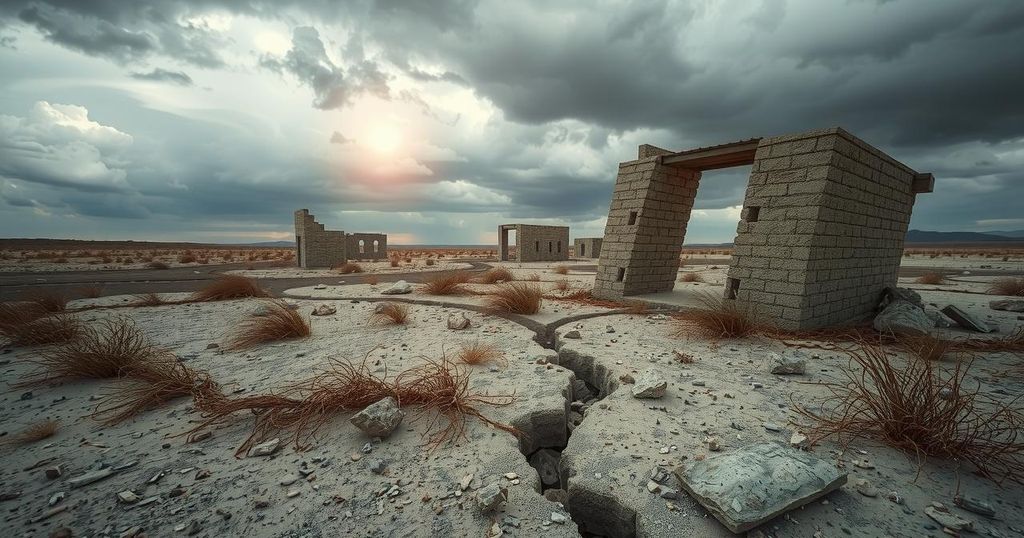UN Warns of Escalating Crisis in Eastern DRC Without Global Intervention

The UN rights chief Volker Türk warned of worsening violence in the eastern DRC due to the M23 offensive backed by Rwanda. Since late January, the conflict has resulted in over 3,000 deaths and numerous injuries, continuing a cycle of violence and humanitarian crisis in the region fraught with armed groups. Immediate international action is urged to address the situation and prevent further human rights abuses.
The UN High Commissioner for Human Rights, Volker Türk, expressed significant concern regarding the escalating violence in eastern Democratic Republic of the Congo (DRC) due to the Rwanda-backed M23 offensive. “If nothing is done, the worst may be yet to come, for the people of the eastern DRC, but also beyond the country’s borders,” he stated at a recent Human Rights Council Special Session in Geneva. Since late January, over 3,000 deaths and nearly 3,000 injuries have been reported due to attacks by M23 and their allies.
The conflict persists in the mineral-rich eastern provinces, primarily North Kivu and South Kivu, which have long been destabilized by numerous armed groups. The situation worsened in late January when M23 forces captured significant territories near Goma and began advancing into South Kivu. This escalation has led to severe humanitarian crises, prompting calls for immediate international intervention to aid those affected.
Authorities have noted grave incidents, including the bombing of two hospitals in Goma that resulted in multiple casualties and a disturbing mass prison break at Muzenze Prison. Reportedly, over 165 female inmates were raped, with many later dying in mysterious circumstances. Mr. Türk condemned the increasing sexual violence, warning it may intensify given the current conflict dynamics.
Bintou Keita, the UN Special Representative in the DRC, highlighted the dire situation in Goma under M23 control, stating that dead bodies remain on the streets. She underscored the urgent need for humanitarian access and protection for human rights defenders and journalists facing threats. Health risks, including cholera outbreaks and tailored responses to ongoing sexual violence, are additional concerns amidst this deteriorating situation.
In reaction to the international crisis, DRC’s Minister of Communications Patrick Muyaya condemned foreign support for armed groups, particularly voicing concerns over Rwanda’s backing of M23, which he claims has led to systemic violence for decades. However, Rwanda’s Ambassador to the UN refuted these claims, alleging that armed groups pose imminent threats to Rwanda and are stockpiling weapons near the border.
Mr. Türk reiterated the need for international efforts to address the ongoing conflict, stressing that the eastern DRC’s suffering is deeply connected to global consumerism, particularly regarding strategic minerals used in electronics like mobile phones. He asserted, “We are all implicated.”
The ongoing crisis in the eastern Democratic Republic of the Congo is deeply rooted in decades of conflict, fueled by the presence of multiple armed groups, including the M23, which is allegedly backed by Rwanda. This region is characterized by its vast mineral resources, which have often been a source of exploitation and conflict. The humanitarian situation has deteriorated rapidly, with thousands of casualties and widespread displacement as hostilities have intensified.
The situation in the eastern Democratic Republic of the Congo presents a dire humanitarian crisis, with increasing violence, human rights abuses, and severe threats to the civilian population. With calls for international intervention, it is vital to address the underlying political and economic factors contributing to the conflict. Greater awareness and action are essential to prevent further deterioration of conditions for the affected populations and to hold accountable those perpetuating the violence.
Original Source: news.un.org








